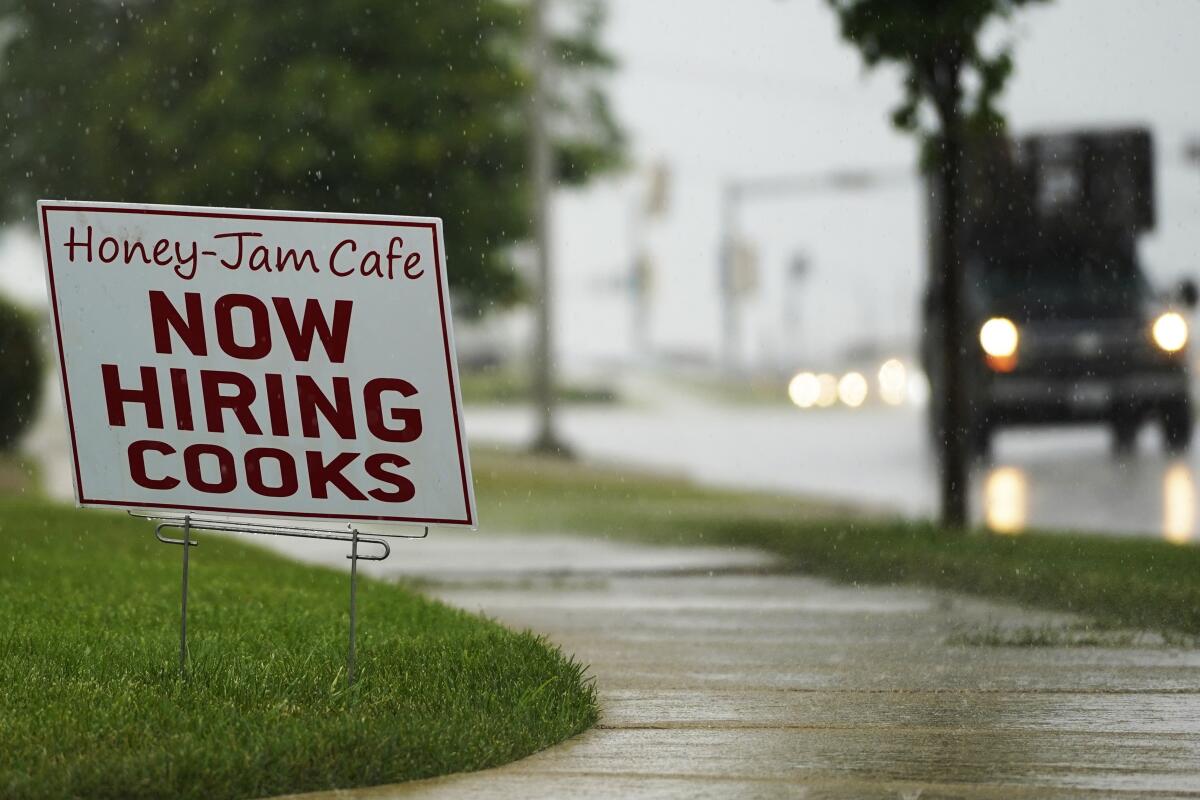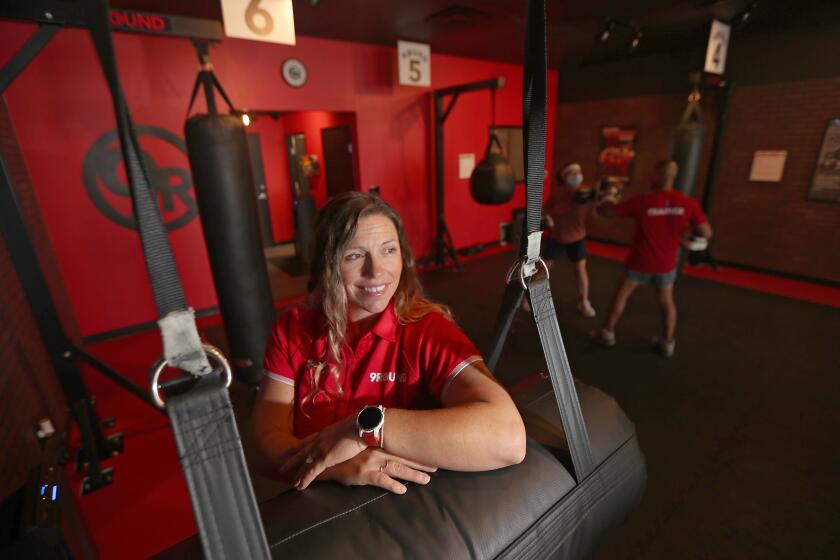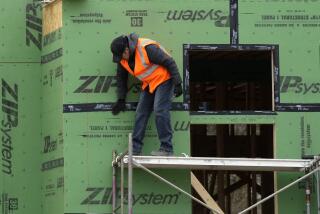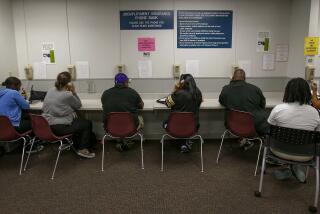Worker pay rises strongly as businesses fight to fill jobs

- Share via
Wages and salaries rose at a healthy pace in the three months ended in June as employers competed to find enough workers to fill millions of available jobs.
Pay increased 1% in the second quarter for workers in the private sector, the Labor Department said Friday. That’s down slightly from 1.1% in the first three months of the year, but still the second-highest reading in more than a decade.
In the year ending in June, wages and salaries jumped 3.5% for workers in the private sector, the largest increase in more than 14 years. That increase was driven by a sharp rise in pay for restaurant and hotel workers of more than 6%.
Total compensation for all employees rose at a slower pace, increasing just 0.7% in the second quarter and 2.9% in the last year. That figure was held back by weaker wage growth in state and local governments, and an unexpected slowing in the growth of benefits, such as healthcare. Benefits provided by companies rose just 0.3% in the second quarter, down from 0.6% in the first.
Employers in California and the U.S. are scrambling to fill jobs as the dust from the pandemic begins to settle. Just don’t call it a labor shortage.
Friday’s data comes from the Labor Department’s Employment Cost Index, which measures pay changes for workers who keep their jobs. Unlike some other measures of Americans’ paychecks, it isn’t directly affected by mass layoffs such as the pandemic job losses that occurred in the spring of 2020.
Separately, the government also reported Friday that consumer spending remained strong in June, rising 1%, and overall incomes ticked up 0.1%. That figure includes incomes from other sources besides wages and salaries, such as government benefits and investment income.
Both reports suggest steady hiring and rising pay should continue to fuel economic growth, though the ongoing spread of the Delta variant poses a threat to the recovery. If consumers become more cautious and pull back on travel, eating out and visiting entertainment venues, growth could slow.
Businesses are being forced to offer higher compensation to attract workers, as customer demand has soared in the spring as the pandemic faded. Companies, particularly in the restaurant and retail industries, are offering sign-on bonuses, wages as high as $15 an hour, and benefits such as retirement plans and pet insurance.
The unemployment rate is elevated at 5.9% and millions of Americans are out of work, yet there are also a record number of job openings. Economists say it will take time for the unemployed to match with the right jobs.
Several trends are likely keeping some workers on the sidelines, adding to the pressure on companies to offer higher pay. Many people are worried about COVID-19 and are reluctant to work in jobs that require them to interact with the public. Others may be caring for children and unable to work until schools reopen.
And an extra $300 a week in unemployment benefits is likely allowing some of those out of work to hold out for higher-paying jobs. About 22 states have ended that benefit and it will expire nationwide Sept. 6.
More to Read
Sign up for Essential California
The most important California stories and recommendations in your inbox every morning.
You may occasionally receive promotional content from the Los Angeles Times.














